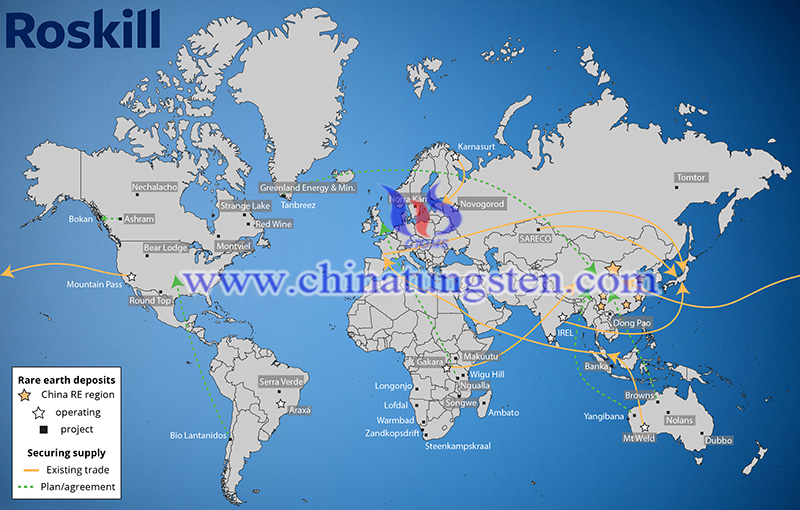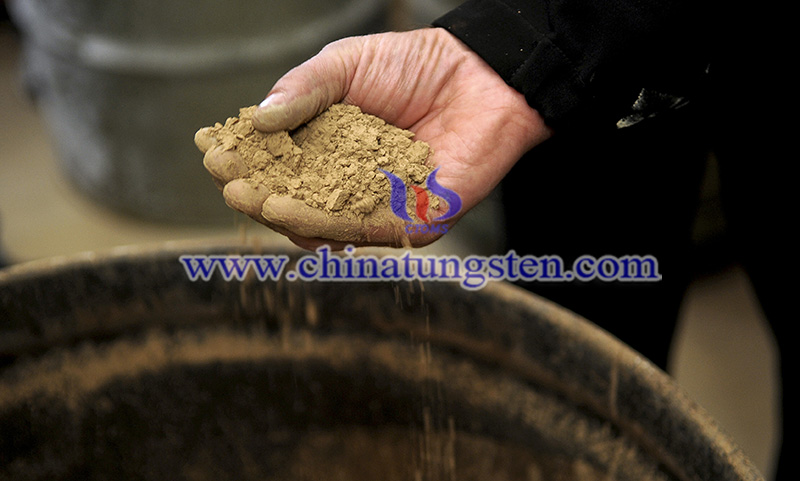Britain Initiates Pacific Rare Earth Mining in Race with China
- Details
- Category: Tungsten's News
- Published on Wednesday, 14 April 2021 21:30
The government of Britain initiates Pacific rare earth mining in a global race to secure the rare earth elements (REEs) that are crucial for fighter jets, wind turbines and electric vehicles amid fears that China could use its monopoly of them.
REEs are precious natural mineral resources, they are a set of 17 nearly indistinguishable lustrous silvery-white soft heavy metals. REEs are relatively plentiful in Earth's crust, with cerium being the 25th most abundant element at 68 ppm, more abundant than copper. While, due to its complex mining and processing, most of them are currently produced in China. The media in the UK reported on April 5 that the government is commissioning a submarine resources company to mine rare earths on the seabed of the Pacific Ocean to reduce excessive reliance on other countries.

According to reports, the company is called the UK Seabed Resources Limited (UKSRL). The head of the company, Chris Williams pointed out that China would exert pressure on the economy of other countries through its advantages in the production of rare earths, while the UK does not have a reliable alternative, which is extremely risky for the UK. It is understood that most of the rare earths used in the UK industry are not handled by themselves.
UK Seabed Resources is a wholly owned subsidiary of Lockheed Martin UK. The company is in partnership with the UK Department for Business, Energy and Industrial Strategy, holding licenses and contracts to explore a total of 133,000 km2 of the Pacific sea floor for mineral-rich polymetallic nodules. The nodules could provide millions of tonnes of copper, nickel, cobalt manganese and rare earth minerals that are used in the construction, alternative energy, aerospace, and communications industries, and so on.
Seabed harvesting sounds ecological for meeting the growing demand for rare metals, and supporting economic growth. UKSRL is working closely with UK government departments and research institutions on environmental, regulatory and industrial significant elements of the project.

With the initiatives of Britain Pacific rare earth mining, Williams expects that by 2030, 3 million metric tons of polymetallic nodules can be mined in the Pacific Ocean floor each year, which is enough to extract 17 rare earth metals such as cerium, neodymium, and terbium that are surplus in the UK. According to reports, in addition to the United Kingdom, China, Japan, South Korea, Belgium, Germany and France are also carrying out similar plans.
- Rare Earth Manufacturer & Supplier, Chinatungsten Online: www.chinatungsten.com
- Tungsten News & Prices of China Tungsten Industry Association: www.ctia.com.cn
- Molybdenum News & Price: news.molybdenum.com.cn
- Tel.: 86 592 5129696; Fax: 86 592 5129797; Email: sales@chinatungsten.com